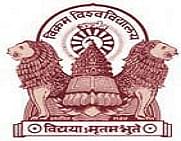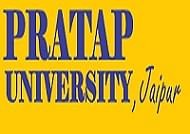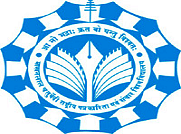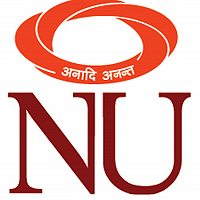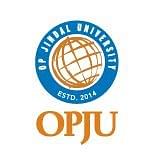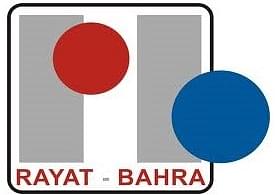Introduction about Ph. D in Agricultural Management
A Ph.D. in Agricultural Management from best college is an advanced academic
program designed to equip students with the knowledge, skills, and research
capabilities necessary to address the complex challenges facing the
agricultural sector. This interdisciplinary field integrates principles of
agriculture, business management, economics, environmental science, and policy
to develop sustainable and efficient agricultural systems.
Throughout the
course of study, students engage in rigorous coursework, research, and
practical experiences aimed at understanding and improving various aspects of
agricultural management. This includes topics such as farm management,
agribusiness operations, agricultural finance, supply chain management,
agricultural marketing, and rural development.
One of the primary
objectives of a Ph.D. in Agricultural Management is to advance knowledge and
innovation within the agricultural sector. Students conduct original research
that contributes to the understanding of agricultural management practices,
addresses pressing issues such as food security, climate change, and resource
conservation, and informs policy and decision-making processes.
The program
typically emphasizes both quantitative and qualitative research methodologies,
equipping students with the tools to collect, analyze, and interpret data
related to agricultural systems and management practices. Students may have the
opportunity to collaborate with industry partners, government agencies, and
international organizations to apply their research in real-world settings.
Graduates of a
Ph.D. program in Agricultural Management are prepared for diverse career paths
in academia, research institutions, government agencies, non-governmental
organizations (NGOs), and the private sector. They may pursue roles as
university professors, agricultural economists, policy analysts, consultants,
or leaders within agricultural businesses and organizations.
Overall, a Ph.D. in
Agricultural Management offers an intellectually stimulating and rewarding path
for individuals passionate about advancing agricultural sustainability,
productivity, and resilience to meet the global challenges of feeding a growing
population while preserving natural resources and promoting economic
development.
What is admission process for Ph. D in Agricultural
Management ?
The admission process for Ph.D. in Agricultural Management may vary depending on the
institution offering the program, but here's a general overview of what you
might expect:
Research Programs: Start by researching universities or
institutions that offer Ph.D. programs in Agricultural Management or related
fields such as Agricultural Economics, Agribusiness, or Rural Development. Look
into their faculty expertise, research areas, and program curriculum to ensure
they align with your academic interests and career goals.
Meet Requirements: Review the admission requirements for each
program carefully. Typically, this includes holding a master's degree in a
relevant field such as Agriculture, Business Administration, Economics,
Environmental Science, or a related discipline. Some programs may accept
exceptional candidates with only a bachelor's degree, especially if they
demonstrate strong academic performance and relevant professional experience.
Prepare Application
Materials: Gather all
required application materials, which usually include transcripts from previous
academic institutions, letters of recommendation, a statement of purpose
outlining your research interests and career objectives, a curriculum vitae
(CV) or resume, and any required standardized test scores. Some programs may
also require a research proposal outlining your intended research topic and
methodology.
Contact Potential
Advisors: Reach out to
faculty members whose research aligns with your interests to express your
interest in the program and inquire about potential research opportunities.
Having a faculty member willing to advise you can strengthen your application.
Submit Application: Complete and submit your application
through the university's online portal by the specified deadline. Be sure to
double-check all requirements and ensure that all materials are submitted
correctly.
Interview (if
applicable): Some programs
may require an interview as part of the admission process. If selected, prepare
for the interview by reviewing your research interests, academic background,
and career goals.
Wait for Decision: After submitting your application, you'll
need to wait for the admissions committee to review your materials. This
process can take several weeks to several months, depending on the program.
Receive Decision: Once the admissions committee has made a
decision, you'll be notified of your admission status. If admitted, you'll
receive information about next steps, including enrollment deadlines and any
additional requirements.
Consider Funding: Investigate potential funding
opportunities such as scholarships, grants, or assistantships offered by the
university or external organizations. Funding can help support your studies and
research throughout your Ph.D. program.
Accept Offer and
Prepare for Enrollment: If
you receive an offer of admission, carefully review the terms and conditions,
accept the offer by the specified deadline, and begin preparing for enrollment
in the program.
By following these
steps and carefully preparing your application materials, you can increase your
chances of being admitted to a Ph.D. program in Agricultural Management and
embark on an exciting journey of advanced study and research in the field.
What is Eligibility for Ph. D in Agricultural
Management ?
The eligibility criteria for Ph.D. in Agricultural Management may vary depending
on the institution offering the program. However, here are some common
eligibility requirements you might encounter:
Educational
Background: Typically,
candidates must hold a master's degree in a relevant field such as Agriculture,
Agribusiness, Agricultural Economics, Business Administration, Economics,
Environmental Science, or a closely related discipline. Some programs may
accept exceptional candidates with only a bachelor's degree, especially if they
demonstrate strong academic performance and relevant professional experience.
Academic
Performance: Candidates are
usually required to have a strong academic record, including a high
undergraduate and/or graduate GPA. The specific GPA requirement may vary by
institution but generally falls within the range of 3.0 to 3.5 on a 4.0 scale.
Standardized Test
Scores: Some institutions
may require applicants to submit scores from standardized tests such as the
Graduate Record Examination (GRE) or the Graduate Management Admission Test
(GMAT). However, this requirement is becoming less common, and many programs
now offer GRE/GMAT waivers or do not require these scores at all.
Letters of
Recommendation: Applicants
typically need to submit letters of recommendation from academic or
professional references who can attest to their academic abilities, research
potential, and suitability for doctoral study in Agricultural Management.
Statement of
Purpose: Candidates are
often required to submit a statement of purpose or personal statement outlining
their research interests, academic background, career goals, and reasons for
pursuing a Ph.D. in Agricultural Management at the institution.
Research Experience: While not always mandatory, having prior
research experience, such as conducting independent research projects,
publishing academic papers, or presenting at conferences, can strengthen your
application.
English Proficiency: For international students whose native
language is not English, proficiency in English is typically required. This is
usually demonstrated through standardized tests such as the Test of English as
a Foreign Language (TOEFL) or the International English Language Testing System
(IELTS).
Interview (if
applicable): Some programs
may require an interview as part of the admissions process. During the
interview, candidates may be asked about their research interests, academic
background, career goals, and fit for the program.
Additional
Requirements: Depending on
the institution, there may be additional requirements such as a writing sample,
a resume or curriculum vitae (CV), or specific coursework prerequisites.
It's essential to
carefully review the eligibility criteria for each Ph.D. program in
Agricultural Management to which you plan to apply, as requirements may vary.
Additionally, reaching out to program coordinators or faculty members for
clarification on any specific requirements can be beneficial.
What is syllabus for Ph. D in Agricultural
Management ?
The syllabus for Ph.D. in Agricultural Management can vary significantly
depending on the institution offering the program, faculty expertise, and
specific research interests. However, here's a general overview of the topics
that might be covered throughout the program:
Foundations of
Agricultural Management:
Introduction to
agricultural management principles and theories
Historical
perspectives on agriculture and rural development
Contemporary issues
and challenges in agricultural management
Research Methods in
Agricultural Management:
Quantitative
research methods (e.g., statistical analysis, econometrics)
Qualitative
research methods (e.g., interviews, case studies)
Experimental design
and data analysis techniques
Research ethics and
integrity in agricultural management research
Agricultural
Economics and Policy:
Microeconomic and
macroeconomic principles as applied to agriculture
Agricultural policy
analysis and evaluation
Market analysis and
agricultural price forecasting
Economic modeling
and simulation in agricultural management
Farm Management and
Production Systems:
Farm planning,
budgeting, and financial management
Crop and livestock
production systems
Sustainable
agriculture practices and environmental management
Risk management and
decision-making in agricultural production
Agribusiness
Management:
Agribusiness
entrepreneurship and innovation
Supply chain
management in agriculture
Marketing
strategies for agricultural products
Financial
management and investment analysis in agribusiness
Rural Development
and Community Engagement:
Rural development
theories and approaches
Community
development strategies in rural areas
Extension education
and outreach in agriculture
Social capital and
networks in rural communities
Environmental
Sustainability in Agriculture:
Sustainable
resource management practices (e.g., water, soil, energy)
Climate change
adaptation and mitigation in agriculture
Environmental
policy and regulation affecting agriculture
Agroecology and
integrated pest management
Advanced Topics in
Agricultural Management:
Emerging trends and
innovations in agricultural management
Globalization and
international agricultural trade
Technology adoption
and digital agriculture
Food security and
food systems resilience
Dissertation
Research:
Proposal
development
Data collection and
analysis
Dissertation
writing and defense
This syllabus
provides a broad overview of the topics typically covered in a Ph.D. program in
Agricultural Management. However, the specific courses and content may vary
between institutions and may be tailored to align with faculty expertise and
research interests.






